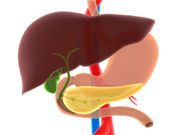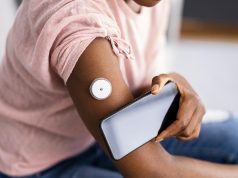Overnight-only and 24/7 closed-loop control reduce hypoglycemia, increase time in range
WEDNESDAY, April 20, 2016 (HealthDay News) — For patients with type 1 diabetes, a portable, wearable, wireless artificial pancreas system (the Diabetes Assistant [DiAs]) improves glucose control at home in closed-loop control (CLC) modes, according to a study published online April 13 in Diabetes Care.
Stacey M. Anderson, M.D., from the University of Virginia in Charlottesville, and colleagues examined the efficacy of the DiAs on glucose control in 30 participants with type 1 diabetes aged 18 to 66 years at six clinical centers in four countries. The protocol included a two-week baseline sensor-augmented pump period followed by a two-week overnight-only CLC and a two-week 24/7 CLC at home.
The researchers found that, compared with baseline, glycemic control parameters for overnight-only CLC were improved during the nighttime period for hypoglycemia (time <70 mg/dL, 1.1 versus 3.0 percent), time in target (70 to 180 mg/dL, 75 versus 61 percent), and glucose variability (coefficient of variation, 30 versus 36 percent; all P < 0.001). Compared to baseline, there were similar improvements for day/night combined with 24/7 CLC (1.7 versus 4.1 percent; 73 versus 65 percent; and 34 versus 38 percent, respectively; all P < 0.001).
“CLC running on a smartphone (DiAs) in the home environment was safe and effective,” the authors write. “Compared with overnight-only CLC, 24/7 CLC provided additional hypoglycemia protection during the day.”
Several authors disclosed financial ties to the biopharmaceutical industry; equipment for the study was provided by Dexcom, Roche, and Abbott.
Copyright © 2016 HealthDay. All rights reserved.








